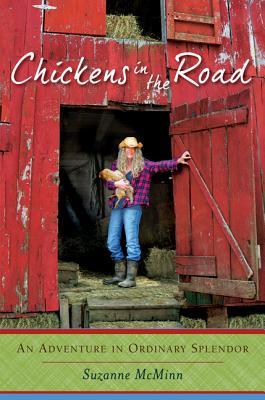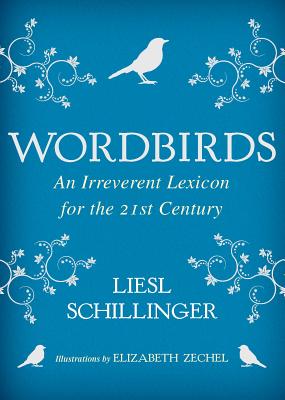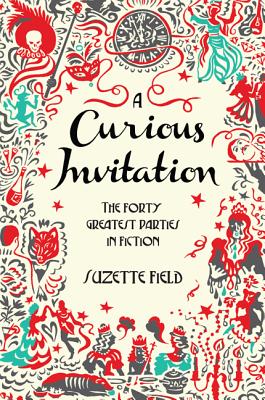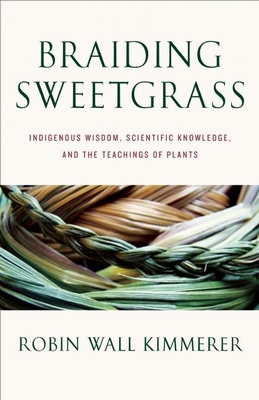If you’ve escaped binary confinement and find yourself rushing cell-mell to a clusterfete— slurpwalking as you commutikaze—then who are you?
You are a typical citizen of the young millennium, caught up in the fast-paced megatasking socio-professional whirl of our ever-evolving digitally-enhanced lives.
If you’ve ever wondered what to call it when you answer the TV remote instead of the phone, or wished you had a phrase to capture your supervisor’s stealth campaign to stall your career, here is your guide. Now you can say “Oops, droidian slip!” with ease, and call out your boss for the impedimentor that he is. Armed with Wordbirds, you will be able to skillfully talk your way into, or out of, any situation the twenty-first century throws at you.
With 150 gorgeous, Audubony, highly expressive bird illustrations, these neologisms will have you crowing with delight, and show you that fine feathers make fine words. Why birds, you may ask? Hadn’t you heard? The bird is the word.
Now stop deliberotting and open this book!
Forty of the greatest fictional festivities as seen through the eyes of the world's greatest writers.
People love to party. And writers love to attend and document these occasions. The party is a useful literary device, not only for social commentary and satire but also as an occasion where characters can meet, fall in and out of love, or even get murdered.
A Curious Invitation is a humorous and informative guide to literature's most memorable parties. Some of these parties are depictions of real events, like the Duchess of Richmond's ball on the eve of battle with Napoleon in Thackeray's Vanity Fair; others draw on the authors' experience of the society they lived in, such as Lady Metroland's party in Evelyn Waugh's Vile Bodies; while others come straight from the writer's bizarre imagination, like Douglas Adams' flying party above an unknown planet from The Hitchhiker's Guide to the Galaxy.
Witty, entertaining, and full of fabulous detail, A Curious Invitation offers readers the chance to crash some of the great parties in literary history.
Sam Shepard is arguably America's finest working dramatist, as well as an accomplished screenwriter, actor, and director. Winner of a Pulitzer Prize, he has written more than forty-five plays, including True West, Fool for Love, and Buried Child. Shepard has also appeared in more than fifty films, beginning with Terrence Malick's Days of Heaven, and was nominated for an Academy Award for his performance in The Right Stuff. Despite the publicity his work and life have attracted, however, Shepard remains a strongly private man who has said many times that he will never write a memoir. But he has written intensively about his inner life and creative work to his former father-in-law and housemate, Johnny Dark, who has been Shepard's closest friend, surrogate brother (they're nearly the same age), and even artistic muse for forty-five years and counting.
Two Prospectors gathers nearly forty years of correspondence and transcribed conversations between Shepard and Dark. In these gripping, sometimes gut-wrenching letters, the men open themselves to each other with amazing honesty. Shepard's letters give us the deepest look we may ever get into his personal philosophy and creative process, while in Dark's letters we discover insights into Shepard's character that only an intimate friend could provide. The writers also reflect on the books and authors that stimulate their thinking, their relationships with women (including Shepard's anguished decision to leave his wife and son--Dark's stepdaughter and grandson--for actress Jessica Lange), personal struggles, and accumulating years. Illustrated with Dark's candid, revealing photographs of Shepard and their mutual family across many years, as well as facsimiles of numerous letters, Two Prospectors is a compelling portrait of a complex friendship that has anchored both lives for decades, a friendship also poignantly captured in Treva Wurmfeld's film, Shepard & Dark.
A consideration of all things paper—its invention that revolutionized human civilization; its thousand-fold uses (and misuses), proliferation, and sweeping influence on society; its makers, shapers, collectors, and pulpers—written by the admired cultural historian and author of the trilogy on all things book-related: A Gentle Madness; Patience and Fortitude (“How could any intelligent, literate person not just love this book?”—Simon Winchester); and A Splendor of Letters (“Elegant, wry, and humane”—André Bernard, New York Observer).
Nicholas Basbanes writes about paper, from its invention in China two thousand years ago to its ideal means, recording the thoughts of Islamic scholars and mathematicians that made the Middle East a center of intellectual energy; from Europe, by way of Spain in the twelfth century and Italy in the thirteenth at the time of the Renaissance, to North America and the rest of the inhabited world.
Basbanes writes about the ways in which paper has been used to record history, make laws, conduct business, and establish identities . . . He makes clear that without paper, modern hygienic practice would be unimaginable; that as currency, people will do almost anything to possess it . . . that the Industrial Revolution would never have happened without paper on which to draw designs and blueprints.
We see paper’s crucial role in the unfolding of historical events, political scandals, and sensational trials: how the American Revolution which took shape with the Battle of Lexington and Concord, began with the Stamp Act of 1765 . . . the Dreyfus Affair and the forged memorandum known as “the bordereau” . . . America’s entry into World War I with the Zimmerman Telegram . . . the Alger Hiss spy case and Whittaker Chambers’s testimony involving the notorious Pumpkin Papers . . . Daniel Ellsberg's release of the Pentagon Papers in 1971 and the scandal of Watergate.
Basbanes writes of his travels to get to the source of the story—to China, along the Burma Road, and to Japan, whose handmade paper, washi, is as much an expression of the human spirit as it is of craftsmanship . . . to Landover, Maryland, home of the National Security Agency and its one hundred million ultra secret documents, pulped by cryptologists and sent to be recycled as pizza boxes and egg cartons . . . to the Crane Paper mill of Dalton, Massachusetts, a seventh-generation family-owned enterprise, the exclusive supplier of paper for American currency since 1879 . . . and to the Kimberly-Clark mill in New Milford, Connecticut, manufacturer daily of one million boxes of Kleenex tissue and as many rolls of Scott kitchen towels.
Entertaining, illuminating, irresistible, a book that masterfully guides us through paper’s inseparability from human culture . . .
As a botanist, Robin Wall Kimmerer has been trained to ask questions of nature with the tools of science. As a member of the Citizen Potawatomi Nation, she embraces indigenous teachings that consider plants and animals to be our oldest teachers. Kimmerer brings these two lenses of knowledge together in Braiding Sweetgrass to take”us on a journey that is every bit as mythic as it is scientific, as sacred as it is historical, as clever as it is wise" (Elizabeth Gilbert).
Drawing on her life as an indigenous scientist, a mother, and a woman, Kimmerer shows how other living beings—asters and goldenrod, strawberries and squash, salamanders, algae, and sweetgrass—offer us gifts and lessons, even if we’ve forgotten how to hear their voices. In a rich braid of reflections that range from the creation of Turtle Island to the forces that threaten its flourishing today, she circles toward a central argument: that the awakening of a wider ecological consciousness requires the acknowledgement and celebration of our reciprocal relationship with the rest of the living world. For only when we can hear the languages of other beings will we be capable of understanding the generosity of the earth, and learn to give our own gifts in return.
 "It was a cold late autumn day when I brought my children to live in
rural West Virginia. The farmhouse was one hundred years old, there was
already snow on the ground, and the heat was sparse--as was the
insulation. The floors weren't even, either. My then-twelve-year-old son
walked in the door and said, 'You've brought us to this slanted little
house to die.'"
"It was a cold late autumn day when I brought my children to live in
rural West Virginia. The farmhouse was one hundred years old, there was
already snow on the ground, and the heat was sparse--as was the
insulation. The floors weren't even, either. My then-twelve-year-old son
walked in the door and said, 'You've brought us to this slanted little
house to die.'"
Thus begins former romance writer Suzanne McMinn's wild ride into self-sustainable living halfway up a hill on one of the most remote dirt roads in West Virginia, with a cast including her children, an enigmatic partner, the "rural neighborhood" of quirky characters, and a whole slew of ridiculous and uncooperative farm animals. An unlikely adventurer, the suburban-born-and-bred author tackles one daunting challenge after another on her new forty-acre farm, from hatching chickens and milking a cow to herding sheep and making her own cheese. Whether she's trying to convince a goat to accept its baby or just get her ornery neighbor to move over and let her pass on the road, every page of her adventure is fraught with laughter, passion, drama, and the risk of losing it all before she figures out why she's doing it in the first place. And when she does lose it all, she discovers a triumph she never expected--along with the truth for which she'd been searching all along.
You are a typical citizen of the young millennium, caught up in the fast-paced megatasking socio-professional whirl of our ever-evolving digitally-enhanced lives.
If you’ve ever wondered what to call it when you answer the TV remote instead of the phone, or wished you had a phrase to capture your supervisor’s stealth campaign to stall your career, here is your guide. Now you can say “Oops, droidian slip!” with ease, and call out your boss for the impedimentor that he is. Armed with Wordbirds, you will be able to skillfully talk your way into, or out of, any situation the twenty-first century throws at you.
With 150 gorgeous, Audubony, highly expressive bird illustrations, these neologisms will have you crowing with delight, and show you that fine feathers make fine words. Why birds, you may ask? Hadn’t you heard? The bird is the word.
Now stop deliberotting and open this book!
Forty of the greatest fictional festivities as seen through the eyes of the world's greatest writers.
People love to party. And writers love to attend and document these occasions. The party is a useful literary device, not only for social commentary and satire but also as an occasion where characters can meet, fall in and out of love, or even get murdered.
A Curious Invitation is a humorous and informative guide to literature's most memorable parties. Some of these parties are depictions of real events, like the Duchess of Richmond's ball on the eve of battle with Napoleon in Thackeray's Vanity Fair; others draw on the authors' experience of the society they lived in, such as Lady Metroland's party in Evelyn Waugh's Vile Bodies; while others come straight from the writer's bizarre imagination, like Douglas Adams' flying party above an unknown planet from The Hitchhiker's Guide to the Galaxy.
Witty, entertaining, and full of fabulous detail, A Curious Invitation offers readers the chance to crash some of the great parties in literary history.
Sam Shepard is arguably America's finest working dramatist, as well as an accomplished screenwriter, actor, and director. Winner of a Pulitzer Prize, he has written more than forty-five plays, including True West, Fool for Love, and Buried Child. Shepard has also appeared in more than fifty films, beginning with Terrence Malick's Days of Heaven, and was nominated for an Academy Award for his performance in The Right Stuff. Despite the publicity his work and life have attracted, however, Shepard remains a strongly private man who has said many times that he will never write a memoir. But he has written intensively about his inner life and creative work to his former father-in-law and housemate, Johnny Dark, who has been Shepard's closest friend, surrogate brother (they're nearly the same age), and even artistic muse for forty-five years and counting.
Two Prospectors gathers nearly forty years of correspondence and transcribed conversations between Shepard and Dark. In these gripping, sometimes gut-wrenching letters, the men open themselves to each other with amazing honesty. Shepard's letters give us the deepest look we may ever get into his personal philosophy and creative process, while in Dark's letters we discover insights into Shepard's character that only an intimate friend could provide. The writers also reflect on the books and authors that stimulate their thinking, their relationships with women (including Shepard's anguished decision to leave his wife and son--Dark's stepdaughter and grandson--for actress Jessica Lange), personal struggles, and accumulating years. Illustrated with Dark's candid, revealing photographs of Shepard and their mutual family across many years, as well as facsimiles of numerous letters, Two Prospectors is a compelling portrait of a complex friendship that has anchored both lives for decades, a friendship also poignantly captured in Treva Wurmfeld's film, Shepard & Dark.
A consideration of all things paper—its invention that revolutionized human civilization; its thousand-fold uses (and misuses), proliferation, and sweeping influence on society; its makers, shapers, collectors, and pulpers—written by the admired cultural historian and author of the trilogy on all things book-related: A Gentle Madness; Patience and Fortitude (“How could any intelligent, literate person not just love this book?”—Simon Winchester); and A Splendor of Letters (“Elegant, wry, and humane”—André Bernard, New York Observer).
Nicholas Basbanes writes about paper, from its invention in China two thousand years ago to its ideal means, recording the thoughts of Islamic scholars and mathematicians that made the Middle East a center of intellectual energy; from Europe, by way of Spain in the twelfth century and Italy in the thirteenth at the time of the Renaissance, to North America and the rest of the inhabited world.
Basbanes writes about the ways in which paper has been used to record history, make laws, conduct business, and establish identities . . . He makes clear that without paper, modern hygienic practice would be unimaginable; that as currency, people will do almost anything to possess it . . . that the Industrial Revolution would never have happened without paper on which to draw designs and blueprints.
We see paper’s crucial role in the unfolding of historical events, political scandals, and sensational trials: how the American Revolution which took shape with the Battle of Lexington and Concord, began with the Stamp Act of 1765 . . . the Dreyfus Affair and the forged memorandum known as “the bordereau” . . . America’s entry into World War I with the Zimmerman Telegram . . . the Alger Hiss spy case and Whittaker Chambers’s testimony involving the notorious Pumpkin Papers . . . Daniel Ellsberg's release of the Pentagon Papers in 1971 and the scandal of Watergate.
Basbanes writes of his travels to get to the source of the story—to China, along the Burma Road, and to Japan, whose handmade paper, washi, is as much an expression of the human spirit as it is of craftsmanship . . . to Landover, Maryland, home of the National Security Agency and its one hundred million ultra secret documents, pulped by cryptologists and sent to be recycled as pizza boxes and egg cartons . . . to the Crane Paper mill of Dalton, Massachusetts, a seventh-generation family-owned enterprise, the exclusive supplier of paper for American currency since 1879 . . . and to the Kimberly-Clark mill in New Milford, Connecticut, manufacturer daily of one million boxes of Kleenex tissue and as many rolls of Scott kitchen towels.
Entertaining, illuminating, irresistible, a book that masterfully guides us through paper’s inseparability from human culture . . .
As a botanist, Robin Wall Kimmerer has been trained to ask questions of nature with the tools of science. As a member of the Citizen Potawatomi Nation, she embraces indigenous teachings that consider plants and animals to be our oldest teachers. Kimmerer brings these two lenses of knowledge together in Braiding Sweetgrass to take”us on a journey that is every bit as mythic as it is scientific, as sacred as it is historical, as clever as it is wise" (Elizabeth Gilbert).
Drawing on her life as an indigenous scientist, a mother, and a woman, Kimmerer shows how other living beings—asters and goldenrod, strawberries and squash, salamanders, algae, and sweetgrass—offer us gifts and lessons, even if we’ve forgotten how to hear their voices. In a rich braid of reflections that range from the creation of Turtle Island to the forces that threaten its flourishing today, she circles toward a central argument: that the awakening of a wider ecological consciousness requires the acknowledgement and celebration of our reciprocal relationship with the rest of the living world. For only when we can hear the languages of other beings will we be capable of understanding the generosity of the earth, and learn to give our own gifts in return.

Thus begins former romance writer Suzanne McMinn's wild ride into self-sustainable living halfway up a hill on one of the most remote dirt roads in West Virginia, with a cast including her children, an enigmatic partner, the "rural neighborhood" of quirky characters, and a whole slew of ridiculous and uncooperative farm animals. An unlikely adventurer, the suburban-born-and-bred author tackles one daunting challenge after another on her new forty-acre farm, from hatching chickens and milking a cow to herding sheep and making her own cheese. Whether she's trying to convince a goat to accept its baby or just get her ornery neighbor to move over and let her pass on the road, every page of her adventure is fraught with laughter, passion, drama, and the risk of losing it all before she figures out why she's doing it in the first place. And when she does lose it all, she discovers a triumph she never expected--along with the truth for which she'd been searching all along.





No comments:
Post a Comment